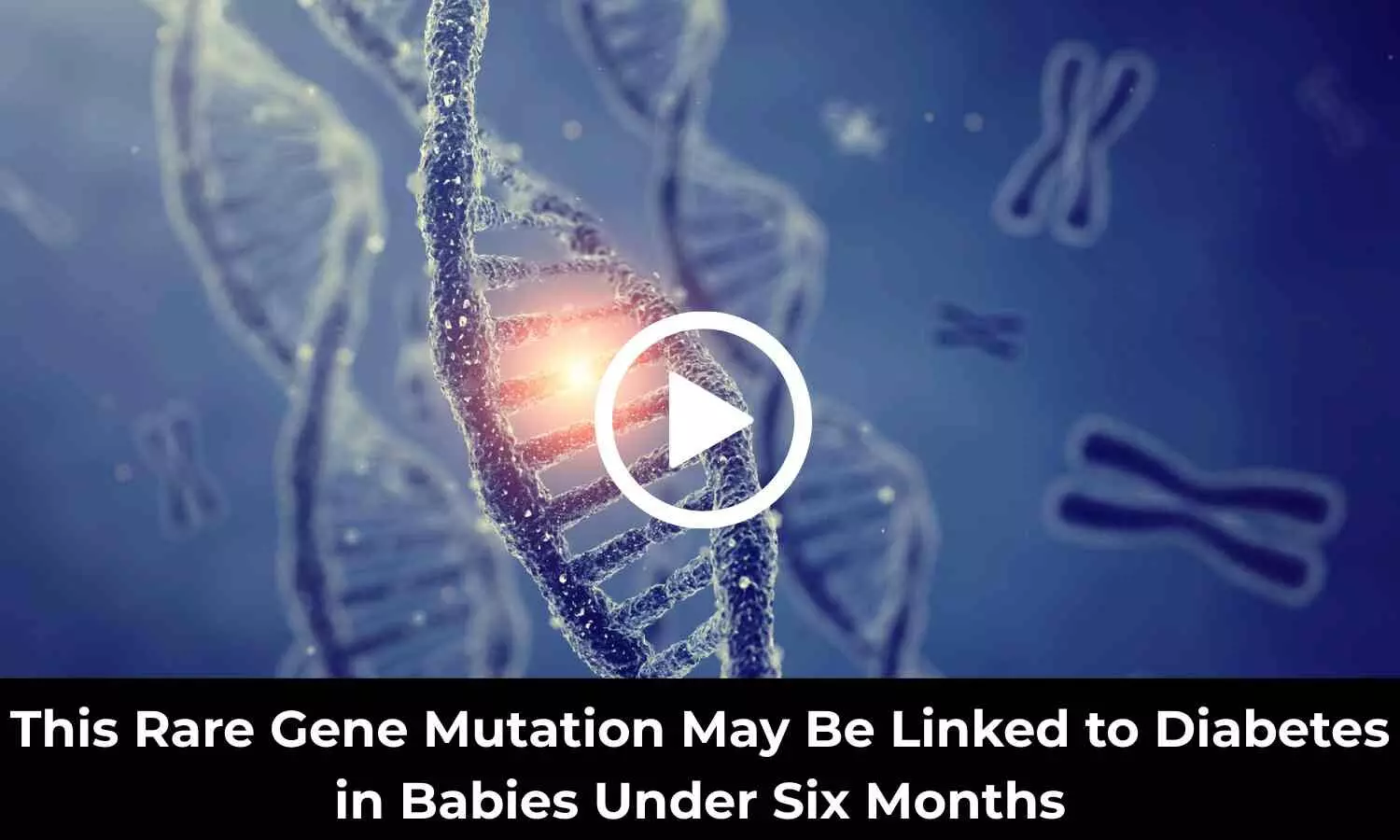This Rare Gene Mutation May Be Linked to Diabetes in Babies Under Six Months: Study Suggests
- byDoctor News Daily Team
- 11 October, 2025
- 0 Comments
- 0 Mins

A recent study published in theJournal of Clinical Investigationhas identified a new genetic cause of neonatal diabetes in infants. The study reveals that mutations in the TMEM167A gene disrupt insulin production in babies diagnosed with diabetes before six months of age. While it is known that over 85% of neonatal diabetes cases result from genetic mutations, the researchers discovered a previously unidentified link in six babies who also suffered fromneurological conditionssuch as epilepsy and microcephaly. All six were found to have alterations in the TMEM167A gene, prompting further investigation into its role. To explore the gene’s function, Professor Miriam Cnop’s team at ULB used stem cells that were differentiated into pancreatic beta cells, those responsible for producinginsulin. Using CRISPR gene-editing technology, they demonstrated that when TMEM167A is altered, the beta cells activate stress pathways and eventually die, rendering them unable to produce insulin. Professor Cnop added, “The ability to generate insulin-producing cells from stem cells has enabled us to study what is dysfunctional in the beta cells of patients with rare forms as well as other types of diabetes. This is an extraordinary model for studying disease mechanisms and testing treatments.” The research confirms that TMEM167A is critical not only for pancreatic function but also for neurons. The discovery opens new avenues for understanding insulin production and could offer valuable insights into broader diabetes research, a condition affecting nearly 589 million people globally. Reference:Enrico Virgilio et al, Recessive TMEM167A variants cause neonatal diabetes, microcephaly and epilepsy syndrome, Journal of Clinical Investigation (2025). DOI: 10.1172/jci195756
Disclaimer: This website is designed for healthcare professionals and serves solely for informational purposes.
The content provided should not be interpreted as medical advice, diagnosis, treatment recommendations, prescriptions, or endorsements of specific medical practices. It is not a replacement for professional medical consultation or the expertise of a licensed healthcare provider.
Given the ever-evolving nature of medical science, we strive to keep our information accurate and up to date. However, we do not guarantee the completeness or accuracy of the content.
If you come across any inconsistencies, please reach out to us at
admin@doctornewsdaily.com.
We do not support or endorse medical opinions, treatments, or recommendations that contradict the advice of qualified healthcare professionals.
By using this website, you agree to our
Terms of Use,
Privacy Policy, and
Advertisement Policy.
For further details, please review our
Full Disclaimer.
Recent News
Weight-loss drugs like Ozempic may help reduce dru...
- 28 October, 2025
ADALA Trial: DOACs Match DAPT in Thrombosis Preven...
- 28 October, 2025
Study reveals fat-fueled neurons may unlock new br...
- 28 October, 2025
Closed-Loop Insulin System Improves Glucose Contro...
- 28 October, 2025
Daily Newsletter
Get all the top stories from Blogs to keep track.


0 Comments
Post a comment
No comments yet. Be the first to comment!